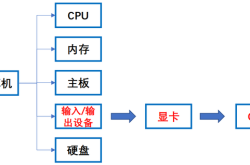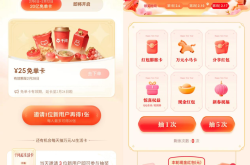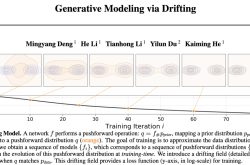Forced into a corner by the 'price war', new tea drinks start to 'compete in AI'
![]() 12/03 2024
12/03 2024
![]() 699
699
"Source | BohuFN
Recently, two subsidiaries of Mixue Bingcheng jointly invested to establish a new AI company named 'Xue Wang Ai Zhihui', with a business scope including AI theory and algorithm software development, basic AI software development, etc.
New tea drinks are embracing AI. What new tricks will they play? How strong is the 'AI flavor' of new tea drinks?
01 New tea drinks with AI: Gimmick or future?
Currently, 'new tea drinks' is an extremely competitive market. From 9.9 yuan coffee to 8.8 yuan and then to 6.6 yuan, there's no such thing as the cheapest, only cheaper. 4 yuan coffee has already emerged, showing the intense competition.
Starbucks' performance in the Chinese market has been sluggish for several consecutive quarters, with sales declining much faster than in other global markets. However, Starbucks has been relatively restrained in participating in the 'price war'.
Starbucks is not the only one unwilling to participate in the 'price war'. In September this year, Heytea fired the first shot against intense competition. In an internal letter, it mentioned that Heytea would 'reject habitual homogeneous thinking and not engage in pure low-price competition'. After the Spring Festival, Luckin Coffee also gradually withdrew from the price war, reducing its 9.9 yuan coffee discounts to only five products, while other products returned to their previous price range.
However, the impact of the 'price war' is very direct, especially in terms of store numbers. For example, Luckin Coffee joined the price war in 2023 and became the chain coffee brand with the most stores in China by June of the same year. Heytea began 'saying goodbye to the 30 yuan price range' in 2022 and opened its franchise policy, with the number of stores exceeding 3,200 in 2023, an increase of 280% year-on-year.
Therefore, after withdrawing from the 'price war', new tea drinks must also consider how to continue to maintain their voice. Currently, 'competitive marketing' has become a new direction.
Heytea has collaborated with brands like Yayoi Kusama and Genshin Impact, hoping to capture more consumers through the appeal of IPs. Luckin Coffee, on the other hand, focuses on product development, introducing 30 new products in the second quarter of this year alone, continuing to serve as a 'hit machine' while also focusing on improving product quality and service experience.
Meanwhile, AI has also become a new way of interactive marketing. For example, brands like Chabaidao and Yihetang have partnered with Ele.me to launch the 'Afternoon Tea Recommendation Officer' campaign, combining hyper-realistic virtual idols with AR technology to enhance consumer interaction.
There is also a health tea shop in Nanjing that has launched 'AI Pulse Diagnosis for Tea Drinking', which uses AI image recognition to analyze consumers' tongues and faces and recommends suitable tea recipes. KuDi's milk tea brand 'Tea Cat' has proposed that all stores be equipped with a human-machine collaboration system, with beverages primarily made by machines.
However, Mixue Bingcheng's recent establishment of the new AI company 'Xue Wang Ai Zhihui' seems to be more than just a 'marketing gimmick'. According to public information, the position of general manager of 'Xue Wang Ai Zhihui' is held by Su Huchen, Mixue Bingcheng's chief technology expert and deputy general manager of the Process and Digitization Center.
Su Huchen was interviewed by the media last year and talked about Mixue Bingcheng's supply chain management. He revealed that Mixue Bingcheng's stores nationwide are gradually upgrading and improving the 'Internet + Transparent Kitchen' project (i.e., real-time broadcasting of kitchens through video surveillance and Internet technology) and will introduce AI recognition to enhance monitoring.
It seems that for the new tea drink industry, AI can be a marketing gimmick but can also empower enterprises' digital and intelligent upgrades, helping stores optimize smart devices, marketing strategies, etc. The 'intelligentization' of new tea drinks is already an inevitable trend.
02 Intelligent upgrade, focusing on cost reduction and efficiency enhancement
The current new tea drink industry has begun to enter the elimination stage. In recent years, the opening and closing rates of new tea drink brands have shown a trend of being high. Data shows that in the first half of 2024, the number of new stores opened by the top 100 chain new tea drink brands was the same as that in the same period last year, but the number of closed stores increased by nearly 3,000.
Since the beginning of this year, well-known brands such as Nayuki, Gu Ming Milk Tea, and Shuyi Burnt Herb Jelly have all reported a large number of store closures. Taking Nayuki as an example, it closed more than 200 stores in 2024, with the total number of closures exceeding 10%, setting a new record high.
In recent years, competitors in the new tea drink industry have been rapidly expanding, leading to a nearly saturated market. Data shows that the new tea drink market grew by 44.3% in 2023, but market growth may decline to 19.7% in 2024.
To find incremental growth within the existing market, new tea drink brands must find ways to maintain their leading position to avoid being easily left behind. In this process, 'internal competition' in various dimensions such as price, product, service, and marketing will be inevitable.
Therefore, many new tea drink brands regard 'intelligence' as a 'weapon' for cost reduction and efficiency enhancement. Firstly, intelligent devices can further improve store efficiency per square meter and reduce labor costs.
In recent years, brands like Heytea, Nayuki, and Ba Wang Cha Ji have launched their self-developed 'intelligent tea machines'. Taking Heytea as an example, it introduced seven 'high-tech tea beverage' devices such as automatic peeling machines and intelligent scales in 2023 and applied for more than 70 related technical patents.
It is understood that Heytea's automatic peeling machine can reduce the manual peeling time from 15 minutes to about 1 minute, and the peak order processing time is halved compared to before. It can also help baristas save the trouble of memorizing recipes. In the past, a junior barista needed at least one month of training, but now everything can be 'automated'.
Zhang Junjie, the founder of Ba Wang Cha Ji, also mentioned in a media interview that the daily production efficiency is expected to increase by about 100-200% after the automated tea brewing and tea-making machines are commercially deployed, and training costs will be minimized.
Secondly, it is to further stabilize quality control. In the past two years, several new tea drink brands have been exposed for food safety issues, such as using expired milk and rotten fruit. These issues not only seriously damage the brand image of the enterprise but also pose a potential threat to consumer health.
Intelligent devices can further maintain product stability, and training AI to recognize key food safety issues through images and real-time monitoring within the store can reduce food safety risks.
In addition, AI is used to optimize supply chain management. Recently, in addition to establishing an AI technology company, Mixue Bingcheng has also established three smart supply chain subsidiaries involving AI. Chabaidao has also invested 10 billion yuan to build a smart production and processing base and supply chain headquarters project.
Taking Mixue Bingcheng as an example, it has always been regarded as a supply chain company disguised as a milk tea shop. Its profits come not only from franchising and selling tea drinks but also from obtaining raw materials at prices below the industry average due to economies of scale. Especially in the 'low-margin era' of new tea drinks, Mixue Bingcheng does not miss out on profits from any link.
However, due to the huge supply chain, the digital transformation of factories is particularly important. Only by tightly integrating every link from production planning, production scheduling, to work order management can inventory be further reduced and the market can be quickly responded to. This is similar to the 'small order, quick return' logic of brands like SHEIN.
Finally, digital systems are used to improve store management efficiency, including inventory management, warehouse receipt inspection, and marketing management. More precise marketing analysis and digital means can further increase store visit rates.
Ba Wang Cha Ji established an information technology company this year, which can achieve automated inventory management, user analysis, sales forecasting, etc., providing a clearer direction for production and operation.
Luckin Coffee has been continuously attracting new users and rapidly expanding through LBS advertising and digital marketing. In addition, through precise data analysis, Luckin Coffee can better understand customer needs and then conduct efficient product design and promotion.
It is worth mentioning that 'intelligence' is also a 'story' that increases the favorability of the capital market for new tea drink brands. Selling related intelligent devices to franchisees is also an additional source of income.
Gu Ming mentioned in its prospectus that the company has developed intelligent devices that can improve store operation efficiency and maintain beverage quality. Currently, five proprietary intelligent devices are equipped in the store. Chabaidao, which went public in April this year, mentioned in its prospectus that it plans to enhance the intelligent capabilities at the store level, such as online ordering, user empowerment, product quality management, and production planning.
03 New tea drinks are increasingly resembling the 'tech industry'
The current new tea drink industry is increasingly resembling the 'tech industry'. Besides accelerating the intelligence of terminal tea drink brands, more new productive forces are also being injected into the upstream traditional tea picking and tea making processes. It is understood that the working efficiency of intelligent tea-picking robots has increased by 50% compared to last year, and it is estimated that one machine can replace 1.5-2 workers.
Currently, intelligent technologies and methods, including AI technology, are accelerating the reshaping of the new tea drink industry. It is an inevitable trend to break the old and establish the new. Therefore, major new tea drink brands have upgraded from competing in price, marketing, and service to competing in technology.
However, regarding how 'technology' should be 'competed in', one should not just follow others. On the one hand, current AI technology and intelligent applications are still in the exploratory stage. Although they can help stores 'reduce costs and increase efficiency' to a certain extent, the initial R&D investment and subsequent maintenance costs cannot be ignored.
Taking Nayuki as an example, its automatic tea machine has been gradually put into use since the third quarter of 2022. In 2022, Nayuki had a net loss of 461 million yuan. In 2023, Nayuki turned losses into profits with a net profit of 21 million yuan. However, after a brief period of profitability, Nayuki fell into losses again, with losses reaching 438 million yuan in the first half of this year alone, close to the total losses for the entire year of 2022.
Taking Nayuki's coffee latte art robot as an example, its single unit price is as high as 800,000 yuan. If all 1,500+ directly-operated stores are equipped with this device, the cost alone would be 1.2 billion yuan, which is half of Nayuki's revenue in the first half of this year. Without effective customer traffic to cover costs, it would undoubtedly be a 'losing deal' for Nayuki.
It can be seen that although intelligent devices and systems can bring certain 'cost reduction' benefits to new tea drink enterprises, in the face of 'hard power' such as brand positioning, operational strategy, and product quality, intelligence can only be regarded as the 'icing on the cake' rather than the 'timely help'.
Especially for small and medium-sized tea drink brands, they do not yet have the ability to research and iterate intelligent devices and are even less likely to take a 'big step' and bet on AI all at once.
In addition, intelligence should also avoid becoming a 'gimmick'. For example, 'Tea Cat' previously proposed that all stores be equipped with a standard human-machine collaboration system, but some franchisees reported that it takes about one minute for a beverage to be ordered and produced, and machine-made tea is not faster than handmade tea. If 'intelligence' cannot solve the actual operational pain points of stores, it is easy to become a mere decoration.
Therefore, compared to 'competing in technology' with the intention of 'if others have it, I must have it too', current new tea drink enterprises should think more about how to remove the 'AI flavor' from new tea drinks.
Currently, due to the fierce competition in the new tea drink industry, most enterprises are prone to 'homogenization' in terms of products, marketing, and positioning. Next, if new tea drinks rely excessively on AI big data to empower innovation and marketing, they may also 'lose their soul'.
At present, the new tea drink brands that can remain in the market have already completed a round of land grabbing and established their market positioning. Therefore, compared to continuing blind expansion and following peers, further consolidating brand recognition through products and services and clarifying the brand's differentiated advantages can give new tea drink brands a unique selling point.
Taking Luckin Coffee as an example, it has introduced more personalized customization services this year, allowing users to customize their coffee according to their taste preferences. Starbucks, the 'ancestor' of customization services, also allows users to customize coffee servings and add flavored syrups based on personal preferences.
In addition, in terms of new product research and development, although big data can provide creative inspiration for new tea drink brands, the quality of new products always depends on the quality of raw materials, R&D experience, and other levels. Moreover, service quality and store environment are also crucial to the consumer experience.
Therefore, regardless of whether AI is a false gimmick or a true empowerment, new tea drink enterprises should let AI empower their strengths rather than 'compete for the sake of competing'. Otherwise, without their unique characteristics, no matter how much they 'compete', it will be in vain. Staying sober is the only way to truly make AI 'work for me'.
The copyright of the cover image and accompanying images belongs to the copyright owner. If the copyright owner believes that their work is not suitable for public browsing or should not be used free of charge, please contact us promptly, and this platform will immediately make corrections.








